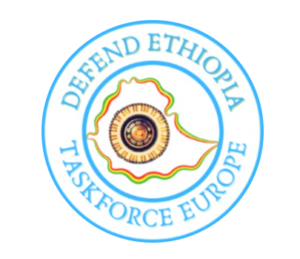Regarding MEPs' resolution on Ethiopia
Download and email the letter to your friends and networks
English | Français | Español | Italiano | German | Czech

6 October 2021
October 6, 2021
Dear Madam,
Dear Sir,
Dear respected members of the European Parliament,
In connection with your ongoing discussions on the crisis in Ethiopia, we members of the Ethiopian diaspora in Europe felt that we should clarify some core issues.
We have particularly noted that some of the public communications by senior European Commission (EC) diplomats have overlooked some key facts. While such omissions are not problematic for those diplomats who follow the crisis closely, we are afraid that they may be giving the wrong picture for those that are less familiar with the case.
First, many diplomats still refer to the crisis as the “Tigray” crisis. While the initial phase of the conflict (and affected areas) was confined to Tigray, active conflicts have now expanded to neighbouring Amhara and Afar regions of Ethiopia. As the later regions have become the main theatres of conflict, especially since early July 2021, some of the worst atrocities and growing humanitarian needs are also being witnessed in these regions. Thus, it might be more appropriate to address it using terms such as the “Northern Ethiopian” crisis or something in that line.
Second, we notice a continued pattern of viewing the Government of Ethiopia (GoE) as the aggressor, or even at times as the originator of the war. In reality, the conflict was ignited following an unprovoked, coordinated, large-scale attack on several military bases of the Northern Command of the Ethiopian National Defence Forces (ENDF). This attack on ENDF’s Northern command was immediately followed by a brutal massacre of over a thousand innocent civilians in Mai Kadra town – leading to the war.
Third, there is a repeated and concerted blame on the GoE for “blocking aid” into Tigray. While aid transportation to Tigray has been challenging and limited, EC diplomats and some in the International Community (IC) have overlooked some of the core underlying factors, sometimes even making us wonder if this is being deliberately done to pressure the GoE. At the end of June 2021, GoE/ENDF withdrew its forces from Tigray region and declared a unilateral ceasefire. Unfortunately, the Tigray People’s Liberation Front (TPLF), a designated “Terrorist” group, has called the ceasefire a “sick joke” and went on rampaging communities in neighbouring Amhara and Afar regions. Furthermore, over 90 percent of World Food Program (WFP) heavy-duty trucks that went into Tigray have been hijacked by the TPLF and are being used for its brutal military campaigns targeting communities in Northern Ethiopia, particularly those in Afar and Amhara regions. This has led to over half a million IDPs in the region, just in the past few weeks alone. The fact that the borders of Tigray have now become theatres of active kinetic war and the trucks are out of aid service means that Tigray and neighbouring communities are not getting the aid they need. Further, IDPs’ deprivation and level of need in Amhara and Afar continue to be severely underestimated by aid agencies.
Fourth, the EC and IC have almost completely overlooked the fact that nearly 40 million Ethiopians have had their biggest democratic exercise yet (perhaps what is their first free, fair and transparent national election). EC has argued, for long, that it stands to support the democratization process in Ethiopia. Its recent actions seem to indicate otherwise. Our community is deeply disappointed and frankly angered by this. Though the democratic exercise is still in its infancy, it needs to be nurtured and supported – not ignored or despised. The will and wishes of tens of millions of Ethiopians cannot be overlooked.
Finally, major western partners such as the US government and some member states of the EU are considering sanctions and other punitive measures on Ethiopia. In this regard, the EC ought to be very cautious – and we cannot stress enough of our warnings. Ethiopia is the second-largest country in Africa by population (over 120 million) and among the poorest. Already, the meagre resources of GoE are stretched thin in its effort to manage the multitude of challenges it faces. EC and US government seem to have a bad track record with sanctions on developing countries (especially those with complex political and conflict dynamics). History has shown that these sanctions worsen civil conflicts, not stop them.
We want to stress that there is substantial scientific evidence on how sanctions further destabilize and impoverish nations – and even make their governments more “authoritarian” – as they try to deal with multifaceted internal and external “pressures” by IC and other actors. We would also like to stress how much the economic and political trajectory of the Horn of Africa (HoA) region (particularly of Somalia, Sudan, South Sudan, Djibouti and Eritrea) are dependent on Ethiopia. An impoverished, unstable, and reclusive Ethiopia very much means an impoverished, unstable, and reclusive HoA region.
Europe must also stop pushing countries of the region into the arms of its geopolitical competitors, particularly “illiberal” regional and global powers. Often, these evolutions are path-dependent and difficult to reverse once they are in motion. As such, they warrant your utmost consideration.
In a time of unprecedented health, environmental, economic, and security challenges across a HoA region, hosting tens of millions of unemployed youths – an ill-fated sanctions regime will only worsen the already massive international migration patterns out of the region. Obviously, the destination is overwhelmingly Europe. The relocation of terror networks from the Levant and Arabian Peninsula to the HoA region, and the implication to an already complex conflict dynamics must also not be overlooked. After all, the region is geopolitically important with proximity to Europe.
Kind regards,
Name